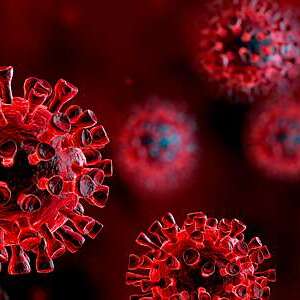Scientists have assessed the risk of blood clots in recovered COVID and vaccinated
The risk of blood clots from a COVID-19 vaccine is lower than the risk of these consequences after a CORONAVIRUS infection, Oxford University researchers have found. The findings of the experts were presented on the university website on Friday, August 27. More detailed results of the study are published in a scientific article in the British Medical Journal (BMJ).
“People should be aware of these increased risks after being vaccinated against COVID-19 and seek timely medical attention if they develop symptoms. At the same time, they should also be aware that these risks [of negative consequences] are much higher <...> in the case of infection with [coronavirus] SARS-CoV-2, ”said Julia Hippiesley-Cox, professor of epidemiology at the University of Oxford, lead author of the article.
During the study, scientists analyzed data from 29 million people vaccinated with the first dose of drugs from Pfizer/BioNTech and ASTRAZENECA. They found an increased risk of negative consequences, including blood clots, which can lead to hospitalization or death. “The study demonstrates an increased risk of thrombocytopenia and venous thromboembolism due to [vaccination] with ChAdOx1 nCoV-19 [AstraZeneca vaccine], as well as an increased risk of arterial thromboembolism after BNT162b2 mRNA [Pfizer/BioNTech] vaccination,” the study concluded.
Despite the threat of blood clots due to vaccination, the researchers nevertheless believe that the chances of such complications are "very small" and urge people to get vaccinated against the coronavirus. According to the results, the incidence rate for thrombocytopenia (often cited as a side effect of AstraZeneca vaccination) after vaccination with AstraZeneca vaccine was 1.33, after a positive test for COVID-19 - 5.27. The incidence rate for venous thromboembolism was 1.1, after COVID-19 it was 13.86. The risk of most other cardiovascular and related diseases was also higher for people who tested positive for COVID-19.
“Summarizing, this study highlights the importance of vaccination to reduce the risk of blood clots [...],” said University of Edinburgh professor and co-author Aziz Shaikh, adding that blood clots are more common after COVID-19 disease than after vaccination. .




























































